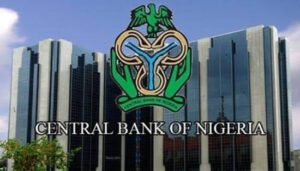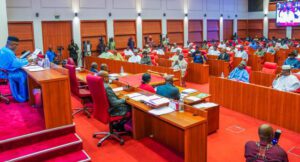
Interswitch kicks off 20th anniversary, launches NeverStop Brand Campaign
To herald its 20th-anniversary commemoration, Interswitch has launched a new brand campaign to project its positioning as a pioneering and integral enabler that has not only actively supported the growth and development of fintech and payments across Africa over the last 20 years.
The brand’s progressive outlook as a frontier-driving company which keeps pushing boundaries and facilitating the creation of new ecosystems that help businesses and individuals scale and thrive, in line with its purpose of inspiring Africa to greatness through innovation, value-creation and excellence.
In the words of Mitchell Elegbe, Founder & Group CEO, at the anniversary kick-off media parley on Tuesday, 30th August 2022, “Today, as we flag off our celebrations, there is quite a lot of excitement within Interswitch, but also some deep reflection as we look back on the journey of the last two decades – twenty years of transforming Africa’s digital economy.
“Interswitch was founded to solve a social problem – to make people’s lives easier when it came to payments, transactions and accessing their funds. We saw a way to do this by developing products and services with the consumer at the heart, leading with technology and innovation.
“As is the case with many pioneers, while we navigated uncharted waters, there were times when we pushed ahead with absolutely no assurances and buoyed up by just sheer tenacity and grit. At those times, the big picture kept us going, our dream to deliver a prosperous Africa, driven by a seamless exchange of value and commerce.”
Elegbe goes on to assert that the foregoing was the foundation upon which Interswitch’s two flagship products, Quickteller and Verve, were created – born from the over-arching mission to solve problems and focused on delivering comprehensive solutions for individuals to make everyday payments, to help connect and simplify the lives of our consumers across the continent.
Capturing the essence of Interswitch’s new ‘Never Stop’ campaign, Cherry Eromosele, the company’s Executive Vice-President for Group Marketing and Communications stated that “anniversaries not only give the chance to celebrate how far we’ve come in our journey but also provide the opportunity to stop, reflect and launch out again with fresh passion, a renewed zeal and a clearer vision.
“This is what underpins the philosophy that has given rise to #NeverStop. As we look ahead, we see enormous potential for future growth and the furthering of our vision. The outlook is rapidly evolving; At Interswitch, we also see the application of digital payments as being sector-agnostic and, with the increasing adoption of technology and digital payments across Nigeria and Africa, opportunities to broaden the fintech/payments landscape continue to present themselves.”
From Elegbe’s perspective, the runway for growth remains significant as well over 50% of Nigeria is still unbanked or underbanked and 85% of transactions in sub-Saharan Africa still occur in cash. He opines that “today, technology is at the forefront of society and will continue to play a significant role in how we work and live.
“Nigeria is fast becoming the tech-capital of Africa, with one of the fastest growing tech markets in the world. Interswitch has always been focused on the bigger picture, with the understanding that ‘going it alone’ is not the answer, and that we do better by working together.
“Building a profitable, thriving business has been important, but in order to achieve our purpose of Inspiring Africa to Greatness, we had to play our part in providing an enabling environment for the holistic ecosystem to thrive.”
Over the next 6 months, the company intends to progressively unveil a line-up of brand campaigns, commemorative events and thought-leadership initiatives centered around this significant corporate milestone on a Pan-African level.



